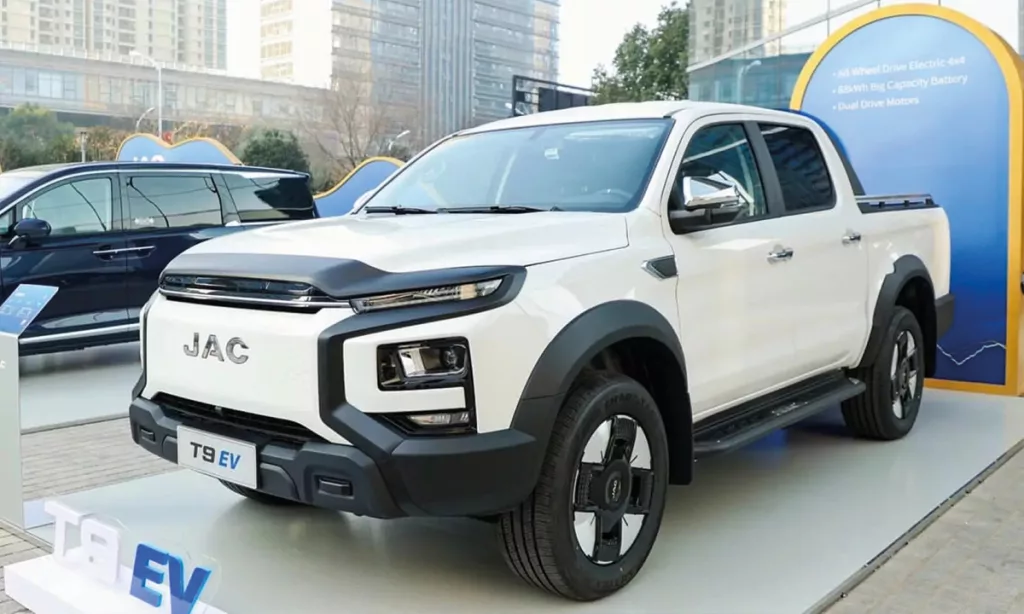
JAC could still be on track to launch the first all-electric bakkie in South Africa once the BEV iteration of the T9 bakkie makes its way to local shores in 2025. Additionally, the Chinese automaker still plans to bring a PHEV model in too, which can achieve a claimed 3.3 L/100 km fuel consumption figure!

Looking for your next new or used bakkie? Find it here with CARmag!
Fresh off of its local launch, Jianghuai Automobile Group Corporation Ltd. (better known as JAC Motors) went into detail on how it plans to expand the T9 lineup with the addition of a PHEV and BEV iteration of the bakkie. Unveiled in 2023 at the Shanghai Automotive Show, the T9 lineup comprised ICE, BEV and PHEV derivatives, all featuring the latest tech, features and performance at the firm’s disposal – it is dubbed JAC’s most technologically advanced bakkie for a reason.
“We are thrilled to introduce the exciting new T9 as the range-topper of our T-Series bakkies. The T9 will lead our charge in the double-cab market, with our versatile T8 and economical T6 line-ups focusing on specific target markets within this market segment,” says Karl-Heinz Göbel, CEO of JAC Motors South Africa.
Related: JAC T9 will become South Africa’s first electric bakkie in 2024
Standard ICE version of the T9 were scheduled to arrive in South Africa from the second semester of 2023, but with port delays, the first units only started trickling in during the early months of 2024. It is likely that this backlog will further delay initial plans to bring BEV and PHEV iterations of the bakkie into the country with realistic expectations for their arrival only in 2025. Interestingly, the firm has also stated that it will include a new ICE powertrain in its lineup, with a 2.5-litre turbodiesel entering the stables although information on this powertrain remains scarce and unconfirmed.
Related: Review: JAC T9 4X4 Super Lux
The T9 BEV 4×4 on the other hand is reportedly powered by an 88 kWh LFP battery pack, allowing it to reach over 400 kilometres per charge and achieve a claimed energy consumption of 27 kWh/100 km. Foreign press releases state that it is endowed with 212 kW and can go from 30% charge to 80% charge in 35 minutes on a DC charger. The PHEV 4×4 derivative features the T9’s 2.0-litre four-cylinder turbo-petrol engine and a 26.8 kWh LFP battery pack, resulting in a claimed 3.33 L/100 km fuel consumption. Information on these new energy vehicles remains scarce and more can be expected closer to their introduction dates.
Looking for your next new or used vehicle? Find it here with CARmag!




